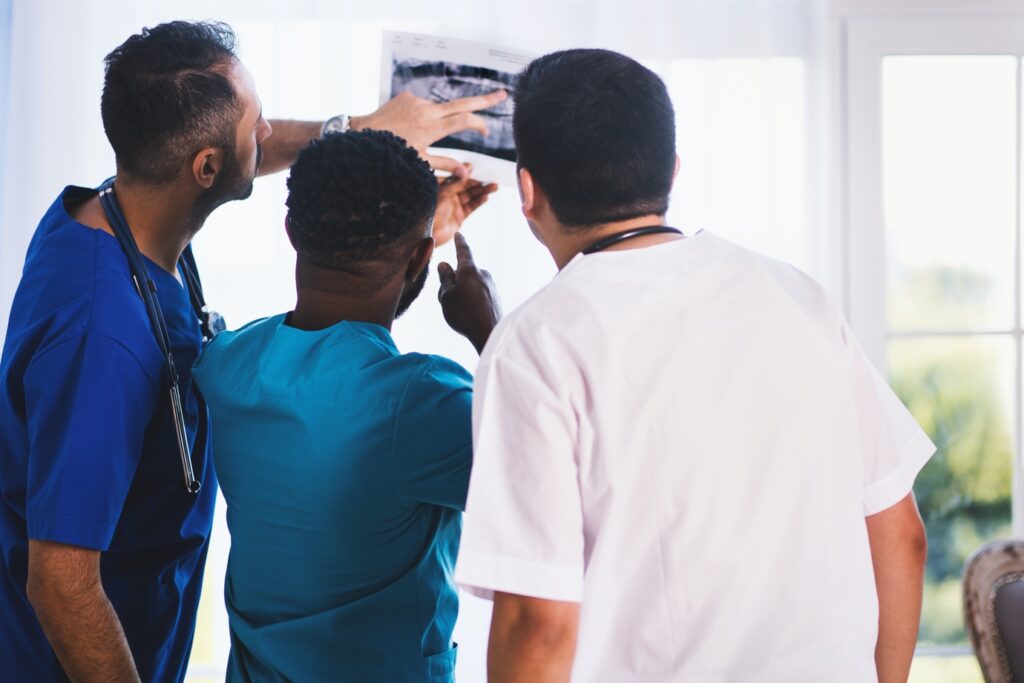How Hospitals Are Using Technology to Reduce Medical Errors
In this article, we’ll explore some of the ways hospitals are using technology to prevent medical errors and enhance the safety and quality of patient care.
Medical errors can have catastrophic consequences, leading to severe injuries or even fatalities. According to recent data, the number of fatal medical negligence claims in the UK is increasing year by year, with over 2,500 claims made in 2020 alone.
However, recent advancements in technology have provided hospitals with new tools to reduce medical errors and improve patient outcomes. To find out more about some of these recent discoveries, we’ll be exploring how hospitals in the UK are using technology to improve surgical precision, diagnoses, and aftercare.

Impact of AI on Healthcare
One of the most promising technologies used in healthcare is artificial intelligence (AI). AI is changing the way healthcare providers operate, allowing them to access patient data in real time, analyse vast amounts of data to provide more accurate diagnoses, and automate routine tasks to free up healthcare professionals’ time.
AI is particularly useful in surgical procedures. Surgeons can use AI to simulate surgeries and practice techniques before performing them on patients. This helps to improve surgical precision and reduce the risk of complications during surgery. AI can also be used to monitor vital signs during surgery, alerting the surgical team if a patient’s condition changes.
Another area where AI is making an impact is in diagnostics. AI can analyse large amounts of medical data, including X-rays, CT scans, and other medical imaging, to identify potential health issues that may not be visible to the naked eye. This technology can help doctors make more accurate diagnoses, leading to better patient outcomes.
Examples of Hospitals Using AI and Technology
Several hospitals in the UK are already using AI and other technologies to improve patient care and reduce medical errors. It has been especially important for hospitals in the UK to adopt these new technologies.
Medical errors can have severe consequences, leaving patients with long-term issues, and unfortunately, they remain a risk in healthcare. However, healthcare providers are increasingly leveraging technology and AI to reduce the workload and reduce the likelihood of errors occurring.

Cambridge University Hospitals NHS Foundation Trust
Cambridge University Hospitals NHS Foundation Trust is using AI to identify patients at risk of sepsis, a potentially life-threatening condition. The hospital uses an algorithm that analyses patient data, including vital signs, to identify patients who may be at risk of developing sepsis. This allows healthcare professionals to intervene early and provide prompt treatment, improving patient outcomes.
Great Ormond Street Hospital
Great Ormond Street Hospital is using virtual reality (VR) technology to help children with long-term illnesses, such as cystic fibrosis, cope with their treatment. The hospital uses VR to create immersive experiences that distract children from their treatment, reducing anxiety and improving their overall experience.
This creates a comfortable experience for those going through treatment. It helps to improve their well-being and mental state at a challenging time, proving how valuable this tech can be.
Queen Elizabeth Hospital Birmingham
Queen Elizabeth Hospital Birmingham is using a surgical robot to perform complex surgeries, such as prostatectomies. The robot provides greater precision than traditional surgical techniques, reducing the risk of complications and improving patient outcomes. The hospital has also used virtual reality to simulate surgical procedures, allowing surgeons to practise techniques before performing them on patients.
Royal Brompton & Harefield NHS Foundation Trust
Royal Brompton & Harefield NHS Foundation Trust is using wearable technology to monitor patients with heart failure. Patients wear a smartwatch that monitors their vital signs and alerts healthcare professionals if there are any changes in their condition. This allows healthcare professionals to intervene early, preventing hospital admissions and improving patient outcomes.
Technology Reducing Medical Errors

AI and other technologies are transforming the way healthcare providers operate, allowing them to provide better care and reduce medical errors. From surgical robots to virtual reality, hospitals in the UK are embracing technology to improve patient outcomes and reduce the risk of complications. As technology continues to advance, we can expect to see even more innovative solutions in healthcare, helping to improve patient care and reduce the number of medical errors.
Cover Image by Freepik

















